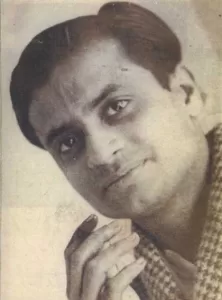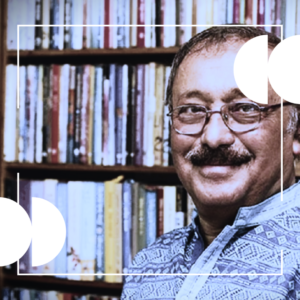
This is the first installment of a series of posts on migrant lives around the world. They are anecdotal and might even sound remote, but they are also the back-stories behind many popular narratives about migrants and migration.
- SLAVING AWAY IN THE MIDDLE EAST
The story about Nepali “slave labor” in Qatar reminded me of a conversation I had at an airport gate-area in Delhi, waiting to board a plane to Dhaka.
Waiting for the same flight were a group of men who, I gathered from the Arabic writings on duty-free bags and bits of conversations I could hear, were Bangladeshi “labor” in the Middle East. I took off my headphones, shifted on my chair to face them, smiled, and asked, “Are you going to Dhaka?” Some murmured “yes,” others nodded, and someone asked if I, too, were going to Dhaka. As is customary in such conversations, we talked about where desh (hometown) was, how long it would take them to go there from Dhaka, how tediously long the journey had been so far with multiple stops.
The conversation turned to how long it had been since they had been home. For most, it had been close to a decade. I took that opportunity to ask about their life in the respective countries and their work. One was in Bahrain, one in Qatar, one in Doha, two in Abu Dhabi, and one in Sharjah. The stories were more or less the same. Work under lock-and-key. A ten minute lunch break before which workers have to hand in their badges. If they return a little late, they are denied re-entry and their badges are thrown away. At least that is what they are told would happen if they took a longer break.
“That badge is the most important thing. If I don’t have it, I am a nobody. If they want to fire me, all they have to do is take away the badge and deny that I ever worked for them. Without a job and money, I won’t be able to get my passport from the contractor.”
What about protests? Do workers not protest, I asked. They all laughed quietly for a few minutes. With a half-smile, one of them finally said, “Protest? We are there at their mercy. If I protest, nothing would happen. I will be fired. There are many men queuing up for my job. Can you imagine the shame if I have to go back home because I was fired? I spent all my savings to be able to come. It is difficult–we live in crowded rooms, we work long hours–but you get used to it. There’s not much else to do anyway.” The other men nodded in agreement, smiling at their fate it seemed to me.
It was humbling to watch them in their pressed clothes, with gift bags for wives and children they hadn’t seen in years. I didn’t have the heart to say that the giant can of powdered-milk one of them was carrying was available everywhere in Bangladesh now. Nor did I tell the elderly man who bought sarees for all the women in his life that it made no sense to buy sarees in Abu Dhabi.
They could not hide their excitement when the loudspeaker announced the boarding time. They ignored the maltreatment that airlines personnel inevitably dish out to South Asian working class men, and the inefficiency which turned a 12-hour journey into a 48-hour one for one of the men. In that moment, no one would think they were breaking their backs in slave-like conditions; nor would anyone guess that the Bangladesh economy stands straight on the bent backs of many such men.
[April 2013]
2. Tarkari Wallah
“Bangali?”
“Yes! You too?”
“Yes! Are you from Bangladesh?”
“No.”
“I am from Bangladesh.”
“Really? We are also from Bangladesh!”
This exchange took place on a road-side vegetable stand in a suburb near Delhi. Well, there was no stand, only a rubber sheet on which stacks of fresh vegetables were laid out neatly. The man and woman who were the sellers got excited and asked me in accented Bangla where in Bangladesh my home was, what I was doing in India, how long I planned to stay. This was a Hindi-accented Bangla I hadn’t heard in Bangladesh or in West Bengal.
The woman–Maloti–and I became friends. She told me that it was her parents who had migrated from Bangladesh when she was a child. She remembers very little. “Do you have anything with you that’s from Bangladesh?” she asked. “I have never seen anything from there but I know that everything in Bangladesh is better than what we get here: vegetables, sarees, everything! Isn’t that right?” I nodded. I told her I would get her a Bangladeshi cotton saree when I went to Dhaka next. Her eyes lit up. “A Dhakai saree! Those are the best sarees in the world!”
She barely remembers the journey that changed her home forever. She only remembers walking a lot. Her family set up shop in Bihar. She grew up there, among Bihar’s poor who were initially antagonistic towards them but later accepted them amongst their midst (That explains, I thought, why she says bartan instead of bashon, and a whole slew of other things that my limited Hindi prevented me from deciphering).
She met her husband in Bihar and they had three children. Poverty made them bohirmukhi, forced them to move, and they decided to try their luck in Delhi. They left behind their two young boys – aged 4 and 6 – with her parents and brought along the 12-year-old daughter thinking she would be able to work as a maid and earn.
“Living here is not good. I have to worry about my daughter’s safety all the time. The people are crude, they behave badly with us. We have been here for about two years. We have been managing, but it’s difficult. We might go back to Bihar. But we have to save up for my daughter’s dowry. I miss my boys, too. Bariwallah says we need to be a bit more patient.”
She kept referring to this bariwallah, or landlord, and I wondered at first, with concern, whether she was reliant on her landlord and forced to be at his beck and call. I tried to figure out why this character was so important to her and why she felt she needed to heed his advice. It was much later that I realized that she was referring to her husband. Why did she call him bariwallah? Is that a Hindi influenced term, then, which perhaps means head of household and not landlord? I never found out.
In addition to helping her husband (Bariwallah!) staff the vegetable stand, she works as a maid in a few apartments in the apartment block–called “society”–nearby. She told me how she never learned Hindi, how she always speaks in Bangla, and how all the “madams” she works for have had to learn Bangla. I smiled. I wondered if she realized that I was struggling to keep up with our Bangla conversation.
“Do you ever think of going back to Bangladesh?” I asked at one point. “I do”, she said thoughtfully. “I dream of it, but I know I’ll probably never go. What will I do there? I don’t know anyone. I don’t have anyone there. My life is here. My parents, children, husband. I would like to go visit though. Shonar Bangla (golden/dear Bengal) after all!”
Bariwallah, on the other hand, is a more recent migrant–having crossed the borders fifteen years ago. He still harbors the desire to go back to Bangladesh and live there after he has “settled” his children. His parents and relatives still live in Bangladesh and he has a home to go to. He has mastered Hindi; he switches back and forth with ease, but they made sure that their daughter knows only Hindi in order to protect her from anti-Bangali prejudice in India’s Hindi-belt.
Maloti and Bariwallah’s story is the story of untold numbers of migrants with fluid identities and a complex relationship to language. Maloti’s Bangali traditions have evolved and morphed into a cosmopolitanism that seeks comfort in a “foreign land.” In South Asia, identities, even languages, are learned divides, for Maloti would probably appear more foreign in Bangladesh than in India as an adult. Her treasured Bangladeshi pride provides a sense of belonging and security, perhaps compensating for dreams unrealized.
[December 2012]






